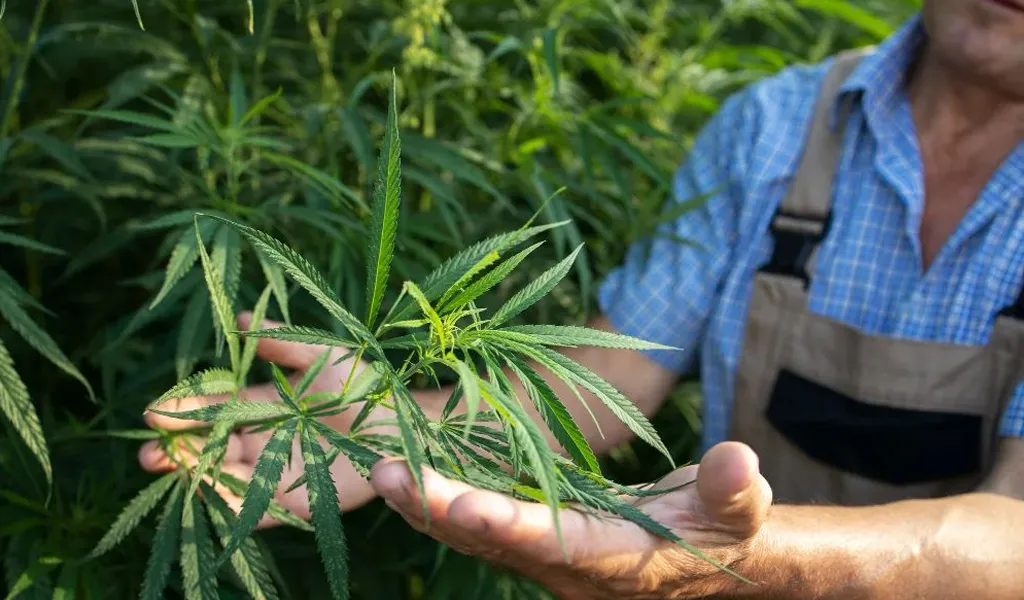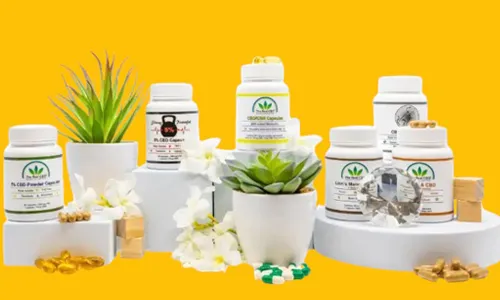As awareness about environmental issues grows, more consumers are prioritizing sustainability in the products they purchase, including CBD. The CBD industry has the potential to create a positive environmental impact by adopting eco-friendly farming practices, reducing waste, and supporting biodiversity. Sustainable CBD not only benefits the planet but also ensures cleaner, higher-quality products for consumers.
In this blog, we’ll explore the importance of sustainability in the CBD industry, how companies are working to reduce their environmental footprint, and how you can choose sustainable CBD products that support both your well-being and the health of the environment.
Why Sustainability Matters in CBD
The production of CBD involves a complex process that includes farming, extraction, processing, and packaging. Each step of the process has environmental implications, from the type of soil used to grow the hemp plant to the energy required to extract CBD oil. Prioritizing sustainability in CBD production ensures that natural resources are used responsibly, waste is minimized, and harmful practices are avoided.
Sustainability in CBD can be broken down into several key areas:
- Eco-Friendly Farming: Hemp cultivation has the potential to be a highly sustainable crop due to its ability to absorb carbon dioxide and grow with minimal water and pesticide use. However, farming practices can vary, and organic, regenerative farming methods ensure that the land is protected for future generations.
- Renewable Energy and Efficient Extraction: The extraction of CBD requires energy, and companies committed to sustainability often utilize renewable energy sources, such as solar or wind power, to minimize their carbon footprint.
- Sustainable Packaging: Plastic waste is a growing environmental concern, and sustainable CBD companies are reducing packaging waste by using biodegradable, recyclable, or reusable materials.
- Ethical Sourcing and Fair Trade: Sustainability also extends to ensuring fair wages and safe working conditions for those involved in the production of CBD, from farmers to factory workers.
By choosing sustainable CBD products, consumers can help support the environment while ensuring they’re using high-quality products that are free from harmful chemicals.
1. Eco-Friendly Hemp Farming
Hemp is often hailed as an environmentally friendly crop due to its natural properties. The hemp plant can grow quickly, requires less water than many other crops, and can even improve soil health through a process called phytoremediation, which helps cleanse the soil of toxins. However, not all hemp farming practices are sustainable, and it’s important to consider how the hemp used in your CBD products is grown.
Organic and Regenerative Farming
The most sustainable CBD products come from hemp that is grown organically. Organic farming practices avoid the use of synthetic pesticides, herbicides, and fertilizers, which can pollute the soil and waterways. Instead, organic farmers rely on natural methods of pest control and soil enrichment, such as crop rotation and composting, which help maintain the health of the land.
In addition to organic farming, regenerative agriculture takes sustainability a step further. Regenerative farming focuses on improving soil health, increasing biodiversity, and sequestering carbon dioxide from the atmosphere. By planting cover crops, reducing tillage, and practicing crop rotation, regenerative farming helps build healthy, resilient ecosystems.
Hemp’s Positive Environmental Impact
Hemp is naturally good for the environment in several ways:
- Carbon Sequestration: Hemp plants absorb large amounts of carbon dioxide (CO2) from the air, helping reduce greenhouse gases.
- Minimal Water Usage: Compared to other crops like cotton, hemp requires less water to grow, making it a more sustainable option for water conservation.
- Pesticide-Free Growth: Hemp is naturally resistant to many pests, reducing the need for harmful pesticides that can damage the surrounding environment.
Choosing CBD products made from organically grown, regeneratively farmed hemp ensures that you’re supporting environmentally responsible agricultural practices.
2. Sustainable CBD Extraction Methods
Extracting CBD from the hemp plant involves separating the cannabinoids from the plant material. This process can be resource-intensive, depending on the method used. Sustainable CBD companies prioritize using environmentally friendly extraction methods that minimize waste and energy consumption.
CO2 Extraction
The most common and environmentally friendly extraction method for CBD is CO2 extraction. This method uses pressurized carbon dioxide to pull the cannabinoids and other beneficial compounds from the hemp plant. CO2 extraction is not only efficient but also leaves behind no harmful solvents, making it a safer option for both the environment and consumers.
Additionally, CO2 extraction is considered a closed-loop system, which means the carbon dioxide used in the process is recaptured and reused, reducing waste and energy consumption. This method has a smaller environmental footprint compared to solvent-based extraction methods that rely on chemicals such as ethanol or butane.
Ethanol Extraction
Ethanol extraction, while still widely used, is less sustainable than CO2 extraction because it requires the use of alcohol solvents, which can produce waste and leave behind residues if not processed properly. However, some companies are working to improve the sustainability of ethanol extraction by using organic ethanol and refining their processes to minimize waste.
Choosing CBD products from companies that use CO2 extraction ensures that you’re supporting a more sustainable and environmentally friendly production process.
3. Renewable Energy in CBD Production
The production of CBD involves several energy-intensive processes, from extraction to packaging. Sustainable CBD companies are increasingly turning to renewable energy sources, such as solar and wind power, to run their operations and reduce their carbon footprint.
Solar and Wind Power
Many environmentally conscious CBD companies have integrated solar panels and wind turbines into their production facilities to generate clean, renewable energy. This helps reduce reliance on fossil fuels, which contribute to air pollution and climate change. By choosing CBD companies that utilize renewable energy, consumers can support businesses that prioritize environmental stewardship.
Energy Efficiency in Manufacturing
In addition to using renewable energy, some CBD companies are focused on improving energy efficiency throughout their manufacturing processes. This can include using energy-efficient machinery, reducing waste heat, and recycling materials during production.
Supporting CBD brands that invest in energy efficiency and renewable energy is an important step toward promoting a greener, more sustainable CBD industry.
4. Sustainable and Eco-Friendly Packaging
Plastic waste is one of the most significant environmental challenges facing the world today. Single-use plastics, which often end up in landfills or oceans, can take hundreds of years to decompose. The CBD industry is not immune to this issue, as many CBD products are packaged in plastic containers, bottles, and wrappers. However, sustainable CBD companies are leading the way by offering eco-friendly packaging solutions that reduce waste and environmental impact.
Biodegradable and Recyclable Packaging
Many forward-thinking CBD brands are opting for biodegradable packaging made from plant-based materials, such as cornstarch or hemp plastic. These materials break down more easily in the environment, reducing the amount of waste that ends up in landfills.
Recyclable packaging is another option. Glass bottles, aluminum tins, and paper-based materials are all recyclable and provide a sustainable alternative to plastic packaging. Consumers can also play a role in reducing waste by properly recycling CBD product packaging after use.
Minimalist Packaging
Some sustainable CBD companies are also focusing on reducing the amount of packaging they use. By cutting down on excess packaging, they can minimize their environmental footprint. Minimalist packaging often involves using fewer materials, avoiding unnecessary plastic seals or inserts, and opting for simpler designs.
Choosing CBD products that come in biodegradable, recyclable, or minimalist packaging is a simple way to reduce waste and support a more sustainable CBD industry.
5. Ethical Sourcing and Fair Trade Practices
Sustainability in the CBD industry isn’t just about environmental impact—it’s also about ensuring ethical and fair trade practices throughout the supply chain. From the farmers who grow the hemp to the workers involved in processing and packaging, everyone involved in the production of CBD should be treated fairly and compensated appropriately.
Fair Wages and Safe Working Conditions
Ethical sourcing means that CBD companies pay fair wages to the farmers and workers involved in the production process. This ensures that these individuals can support themselves and their families while working in safe, healthy conditions. Sustainable CBD companies often form direct relationships with their hemp farmers to ensure transparency and fairness.
Sourcing from Small Farms
Many sustainable CBD companies source their hemp from small, family-owned farms that use sustainable and ethical farming practices. These farms often take a more hands-on approach to cultivating hemp, focusing on quality and environmental stewardship rather than mass production. Supporting small-scale farms helps promote biodiversity and preserve rural farming communities.
When choosing CBD products, look for companies that prioritize ethical sourcing and fair trade practices, ensuring that the people behind your products are treated with respect and care.
6. Certifications and Transparency
When it comes to sustainability, transparency is key. Consumers need to be able to trust that the CBD products they’re purchasing are genuinely eco-friendly and ethically sourced. Many sustainable CBD companies are certified by third-party organizations that verify their environmental and ethical practices.
USDA Organic Certification
One of the most trusted certifications for sustainability is the USDA Organic label. CBD products with this certification are made from hemp that is grown without synthetic pesticides, herbicides, or fertilizers. The USDA Organic label ensures that the hemp is grown using environmentally friendly practices.
Fair Trade Certification
Fair trade certification ensures that the workers involved in producing CBD products are paid fair wages and work under safe conditions. This certification is particularly important for companies that source their hemp from international farmers.
Third-Party Lab Testing
Sustainable CBD companies often provide third-party lab testing to verify the purity and potency of their products. Transparency in lab results ensures that consumers are getting high-quality CBD that is free from harmful chemicals, pesticides, and contaminants. This commitment to transparency is a sign of a trustworthy and sustainable brand.
7. How to Choose Sustainable CBD Products
With so many CBD products on the market, it can be challenging to know which brands prioritize sustainability. Here are a few tips to help you choose eco-friendly CBD products:
- Look for Certifications: Choose CBD products with certifications like USDA Organic, Fair Trade, or third-party lab testing to ensure you’re purchasing from a sustainable and ethical company.
- Research the Brand: Check the company’s website to learn more about their sustainability practices. Look for information on how they source their hemp, what extraction methods they use, and how they package their products.
- Choose Recyclable Packaging: Opt for products that come in glass, aluminum, or biodegradable packaging to reduce your environmental impact.
- Support Small-Scale Farms: Look for CBD companies that source their hemp from small, family-owned farms using sustainable farming practices.
By making informed choices, you can support CBD companies that prioritize sustainability and environmental stewardship.
Conclusion: CBD for You and the Planet
Sustainability is more than just a buzzword in the CBD industry—it’s a movement toward creating products that benefit both consumers and the environment. From organic farming practices and eco-friendly extraction methods to recyclable packaging and ethical sourcing, sustainable CBD products offer a way to enjoy the benefits of CBD while minimizing harm to the planet.
As a consumer, you have the power to support companies that are committed to sustainability. By choosing CBD products that prioritize the environment, you’re not only enhancing your own wellness but also contributing to a healthier, more sustainable world.


